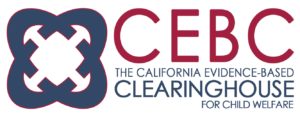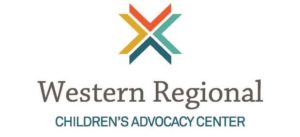Training and Technical Assistance Initiatives
The Chadwick Center leads and participates in several initiatives funded by state and federal grants to assist professionals in many fields by providing tools that inform about evidence-based practices, trauma in children and child maltreatment reporting, prevention and treatment:

The Advancing California’s Trauma-Informed Systems (ACTS) Project supports county child welfare and family serving systems across the state of California in planning for, implementing and sustaining trauma-informed change that aligns with best practice and science. ACTS partners with organizations to identify individualized areas for trauma-informed care (TIC) advancement, provides in-depth resource sharing and offers workforce and leader-focused trainings on different aspects of TIC, along with time-limited Technical Assistance on TIC implementation and sustainment. The ACTS project is funded by the California Department of Social Services (CDSS), Office of Child Abuse and Prevention (OCAP).
The California Evidence-Based Clearinghouse for Child Welfare (CEBC) supports the effective implementation of evidence-based practices for children and families involved with the child welfare system by providing child welfare professionals with easy access to vital information about selected child welfare related programs, as well as guidance on how to make critical decisions regarding selecting and implementing programs. This project is funded by the California Department of Social Services (CDSS), Office of Child Abuse Prevention (OCAP).

The California Training Institute (CalTrin) delivers a comprehensive, science-based professional education program to meet the needs of administrators, staff and stakeholders of the Family Resource Centers (FRCs), Child Abuse Prevention Councils (CAPCs), and child welfare agencies in the state of California. Our model allows learners to choose training that works for their schedule, learning style, and career path. It also provides opportunities to extend learning beyond an individual training event by supporting participants with related resources and practical applications. All of CalTrin’s content is provided at no cost to learners. This project is funded by the California Department of Social Services (CDSS), Office of Child Abuse Prevention (OCAP).
The Western Regional Children’s Advocacy Center (WRCAC) is funded through the U.S. Department of Justice, Office of Juvenile Justice and Delinquency Prevention to provide training and technical assistance to professionals involved in the investigation, prosecution and treatment of child abuse. WRCAC serves existing and developing children’s advocacy centers, multidisciplinary teams and communities working to improve their response to child abuse in thirteen western states: Alaska, Arizona, California, Colorado, Hawaii, Idaho, Montana, Nevada, New Mexico, Oregon, Utah, Washington and Wyoming. WRCAC’s efforts are guided by the firm belief that a trauma-informed, coordinated community response that brings investigative and services agencies together in a multidisciplinary team is the best way to achieve the missions of each agencies and, at the same time, best serve the interests of child victims.
WRCAC offers the following services to build the capacity of communities and states to respond to child abuse allegations and increase the number of children served through the children’s advocacy center model:
Local, state and regional trainings for professionals involved in the investigation of and response to child maltreatment, including law enforcement officers, child welfare workers, mental healthcare workers, medical providers, forensic interviewers, victim advocates, agency directors and others.
Customized technical assistance to strengthen existing and emerging children’s advocacy centers and state chapters of the National Children’s Alliance, with a special focus on tribal communities and those serving American Indian/Alaskan Native children and youth in rural, urban and tribal jurisdictions.
Collaboration with regional and national partners to develop and implement best standards of practice and provide coordinated support to the children’s advocacy center movement.
Publications and accessible resources for professionals seeking evidence-based practices, protocols and information to guide their work.


